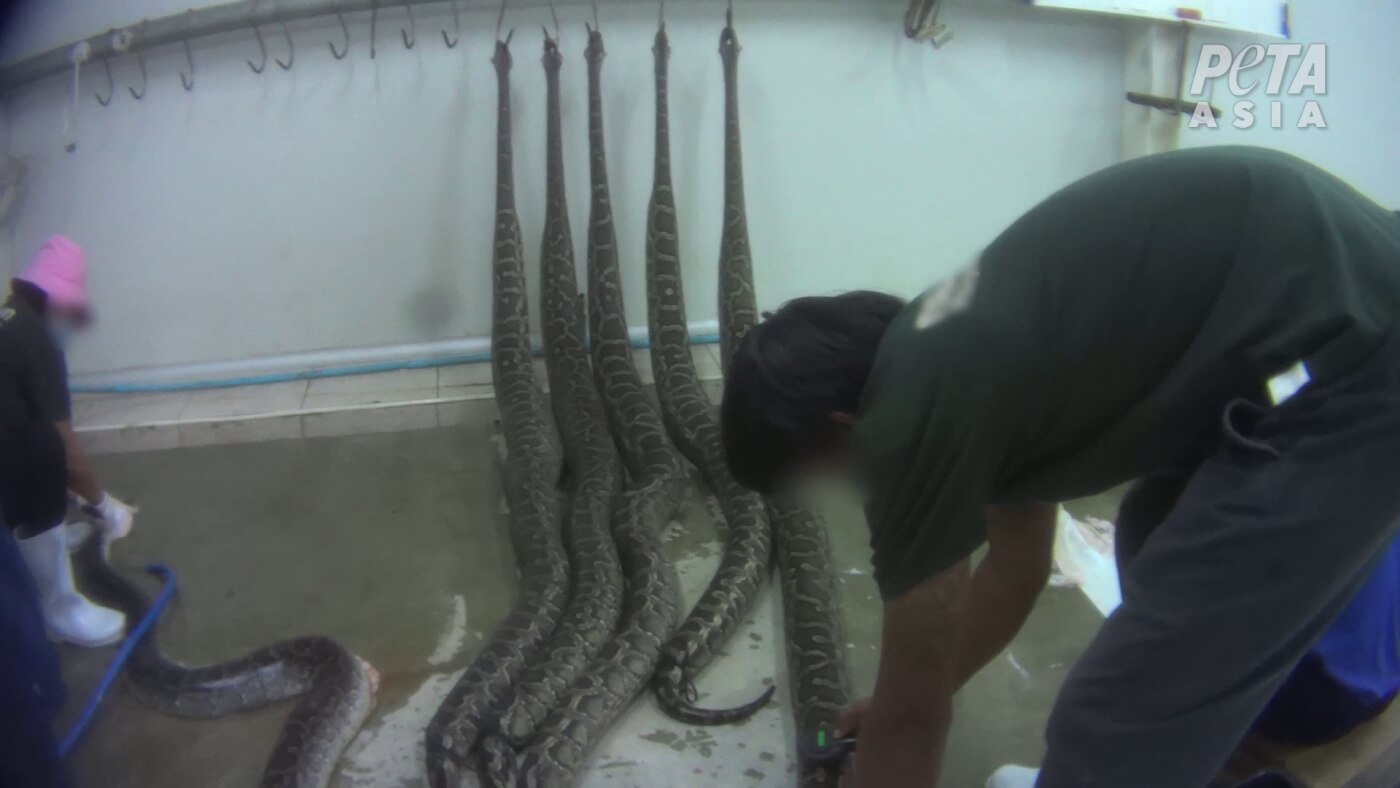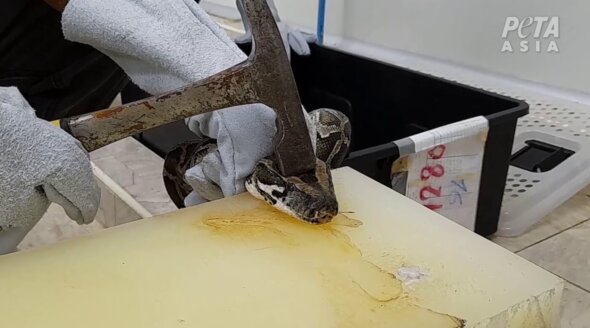Tate Modern Linked to Horrific Exotic-Skins Industry
Following Gucci’s announcement that its Cruise 2025 show will be presented at Tate Modern on 13 May, PETA rushed a letter to the art gallery’s director, Karin Hindsbo, urging her to prohibit the display of cruelly obtained skins of reptiles and other wild animals.
The letter highlighted our new exposé of python farms in Thailand that supply Gucci’s owner, Kering, revealing that workers bash snakes in the head with hammers, impale them with hooks, inflate them with water – as they continue to move – and then skin them for Gucci’s wallets, belts, and purses.
Gucci’s Links With Rampant Abuse
PETA entities have exposed rampant cruelty at slaughterhouses that supply skin to the fashion industry, including workers hacking at crocodiles’ necks and shoving metal rods down their spines. An earlier exposé of slaughterhouses in Indonesia that supply Gucci documented workers taking up to 14 blows in attempts to behead lizards with machetes, causing them a prolonged, agonising death.
How Is Tate Modern Implicated?
Gucci’s exotic-skin accessories – made from once-living individuals who were housed in filth and hacked to pieces just for a fleeting fashion statement – belong in a horror museum, not Britain’s home to innovation and modernity.
Tate Modern can reject Gucci’s speciesism by refusing to support or promote the killing of wild animals and permanently banning any display of exotic-animal skins at the gallery.
Modern Fashion
Enlightened purveyors of fashion – including Burberry, Victoria Beckham, Vivienne Westwood, Paul Smith, Selfridges, and Liberty – have banned exotic skins.
Many brands are meeting the demand for sustainable animal-friendly products by offering vegan leather options made from pineapples, mushrooms, apples, cacti, and other innovative materials.
How You Can Get Involved
You can urge Gucci to drop exotic skins now by using PETA’s online action alert:





